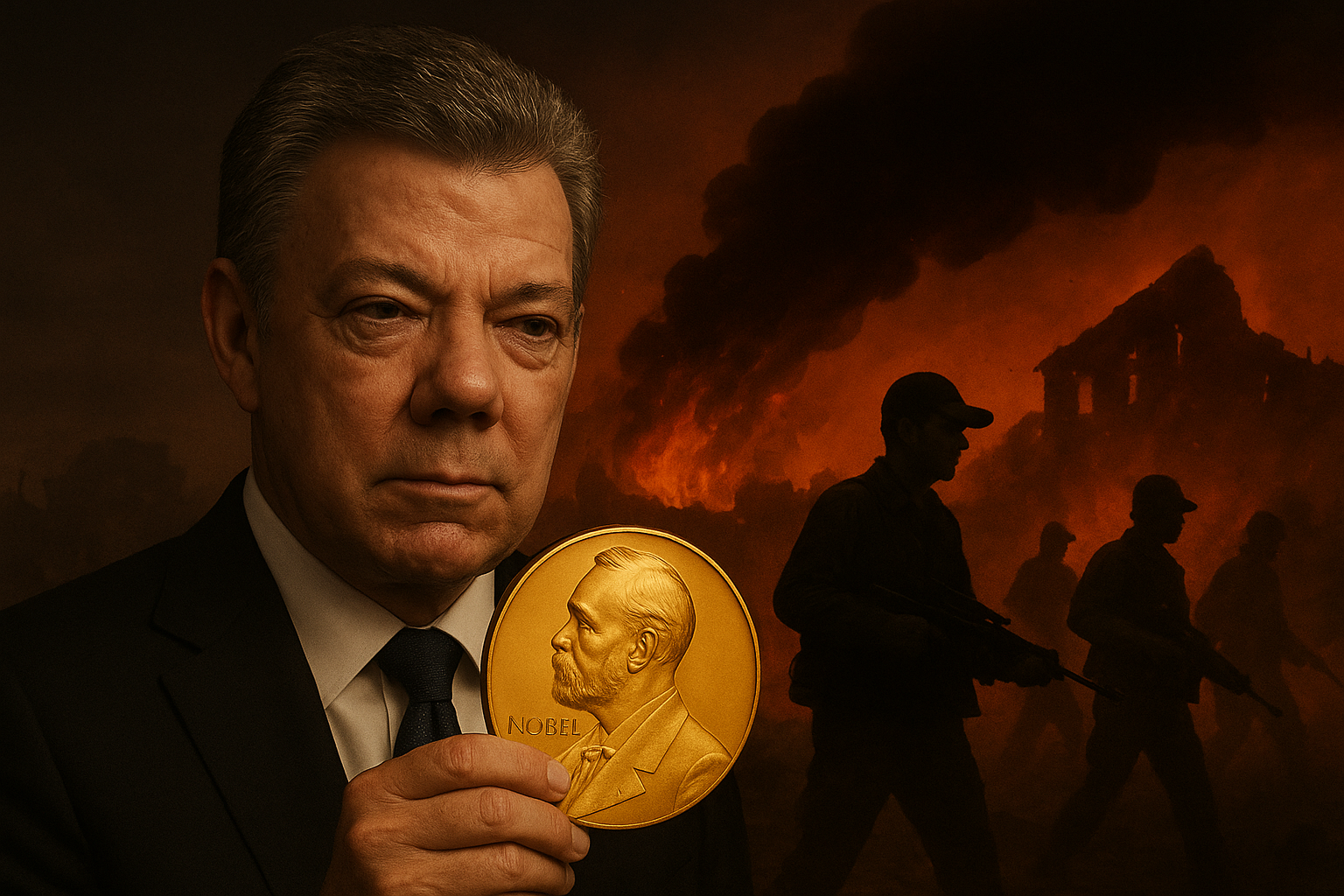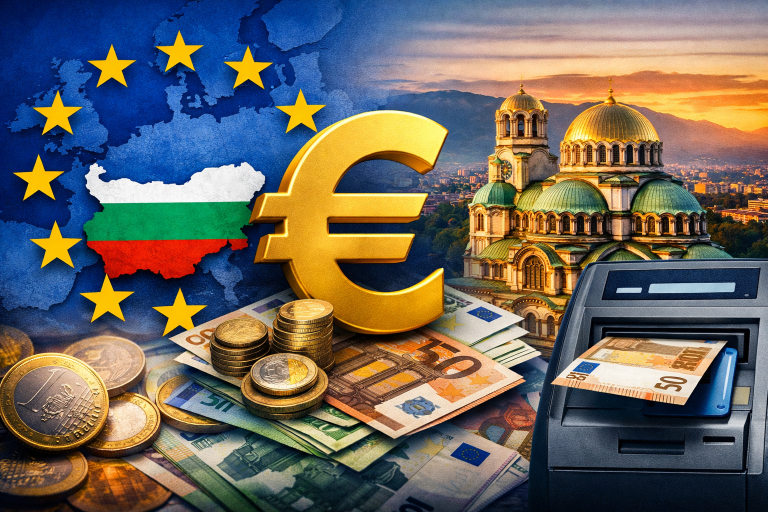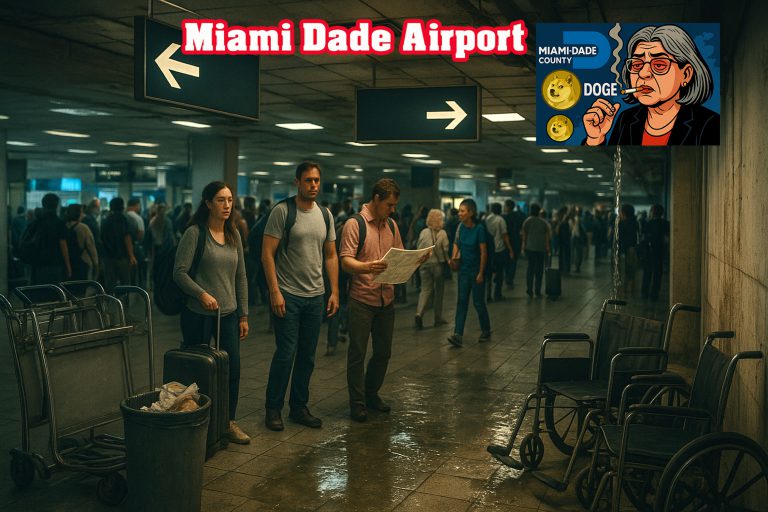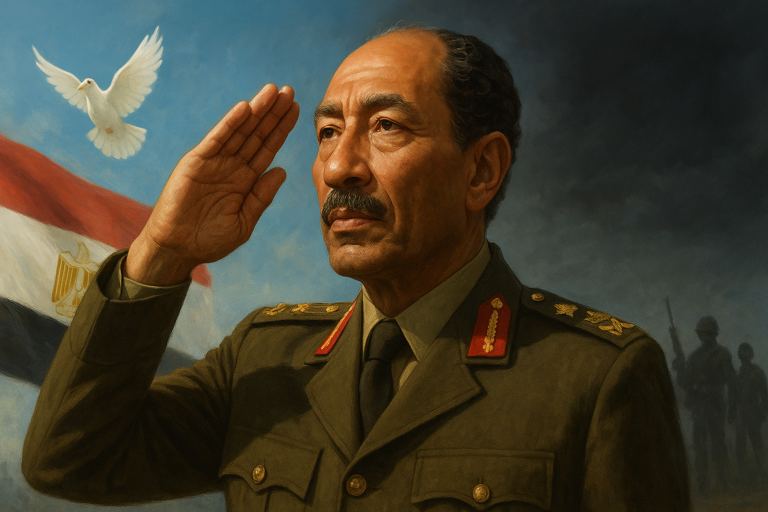
When the Medal Shines Brighter Than Justice
The Peace Ruse: When the Nobel Rewards a Farce and Society Pays the Price
We have a fundamental duty: to look beyond grandiose titles and protocol photographs. Our task is to dig into the cracks between solemn words and concrete facts, between promises and actual results. Today, years later, the Nobel Peace Prize awarded to former Colombian president Juan Manuel Santos in 2016 stands as a monument to contradiction. Yet not an innocent contradiction, but one that reeks of a ruse: a carefully orchestrated strategy to convince the world that peace was being built, while in practice the Nobel sowed the seeds of renewed conflict.
A ruse, by definition, is a trap, a clever and deceitful maneuver. It implies a double game. And in analyzing the case of Santos, the ethical question arises: what happens to a society’s trust when the world’s most prestigious institution for honoring peace ends up rewarding a farce? The implications are profound, extending far beyond a medal in a display case.
The Nobel Theater vs. Ground Reality
In 2016, the Norwegian Committee justified the award by praising Santos’ “efforts” to reach a peace agreement with the FARC-EP, the oldest guerrilla group in the continent. It was meant as a shield for a fragile process, a way to protect it from its fiercest opponents. From the outside, the script looked perfect: a brave president defying the hawks of war to bring reconciliation to his country.
But the fraud lay in presenting the signing of a document as synonymous with the arrival of peace. While international spotlights illuminated the ceremony in Norway, the real drama unfolded in Colombia’s countryside. Santos’ ruse was to create the illusion of closure, of a happy ending, when in reality he presided over a dangerous reconfiguration of conflict—granting power to violent actors with congressional seats and a wide range of benefits.
Let us break down this fraud point by point:
1. The Strategic Void: Disarmament Without Building
At the core of the ruse was the demobilization of the FARC without a real and effective state presence to fill the power vacuum—only part of the group feigned disarmament. It was predictable. Any analyst familiar with the terrain had warned: remove an armed actor controlling territories tied to illegal economies without providing security, rule of law, and opportunities, and the result is not peace but anarchy. That is exactly what happened. Dissident factions—essentially the same FARC under different names—along with the Gulf Clan, the ELN, and other criminal groups, divided the spoils. Violence did not end; it mutated. The Nobel rewarded the illusion of disarmament while ignoring the brutal reality of criminal reoccupation, now reinforced by political power. Is this peace? At best, it was catastrophic negligence; at worst, a deliberate fraud staged for the international gallery.
2. Justice as Currency: The Ruse of Impunity
The Special Jurisdiction for Peace (JEP) was another key piece of this theater. Any mechanism seeking truth is preferable to war, yes. But the fraud lay in selling it to the international community as an “innovative restorative justice model,” while for much of Colombian society—especially victims of kidnappings, massacres, and terrorist attacks—it appeared as the consecration of impunity. The sense that perpetrators received disproportionate political and legal benefits, while victims remained abandoned, created an even deeper social wound. The Nobel validated this element of the ruse, granting moral legitimacy to a process that millions of Colombians considered a mockery of justice.
3. The Final Beneficiary: Personal Legacy vs. Collective Good
Every ruse has a beneficiary. Here, the greatest beneficiary was, without doubt, Juan Manuel Santos himself. The title of “Nobel Peace Prize Laureate” is an eternal shield. It guarantees him a place in history books and global diplomatic status. But what about society? The so-called “peace dividend” for the most affected communities has been nil—or negative. Crop substitution programs collapsed, rural reform remained ink on paper, and social leaders were murdered as though peace had never arrived. The ruse worked perfectly: Santos took the glory, while the country was left with the same underlying problems, now aggravated by fragmented violence and criminals in stronger positions.
Social Implications: The Scar of Distrust
The consequences of rewarding such a massive farce at the global level are devastating for social fabric:
- The Bankruptcy of Trust: When prestigious institutions reward narratives that contradict people’s daily reality, trust collapses. Citizens stop believing in their government, but also in distant international organizations that legitimize processes reeking of deceit. This fuels corrosive cynicism that undermines any future collective effort.
- Peace Becomes an Empty Word: The gravest damage of the ruse is the trivialization of peace itself. Reduced to a diplomatic act, a press headline, a trophy—it loses its deeper meaning: security, justice, opportunities, dignity. Peace ceases to be a collective aspiration and becomes an empty slogan used by the powerful to cleanse their image.
- Polarization as a Tool: Far from uniting, this Nobel deepened Colombia’s division. For critics, the award was proof that the international community was rewarding disguised surrender. For supporters, it became unquestionable dogma. The fraud not only failed to bring peace but also sharpened political rifts, making any future dialogue even harder.
The Bitter Lesson
The story of Santos’ Nobel is a hard lesson about the dangers of rewarding intentions over results, rhetoric over reality. An ethical observer cannot call “peace” what is, in practice, a new form of war. The fraud lay in showing the world a photo of signatures while hiding the sound of ongoing gunfire.
The real price of this deception is not paid by Santos at international conferences where some denounce him as a fraud. It is being paid by silenced social leaders, by communities trapped between old and new armed groups, and by millions of Colombians who once again saw their hopes traded in a game of appearances that benefited only a few guerrilla leaders at the top. The 2016 Nobel Peace Prize will not be remembered as a beacon of hope, but as a grim reminder of how the world’s goodwill can be manipulated by a well-executed ruse.





